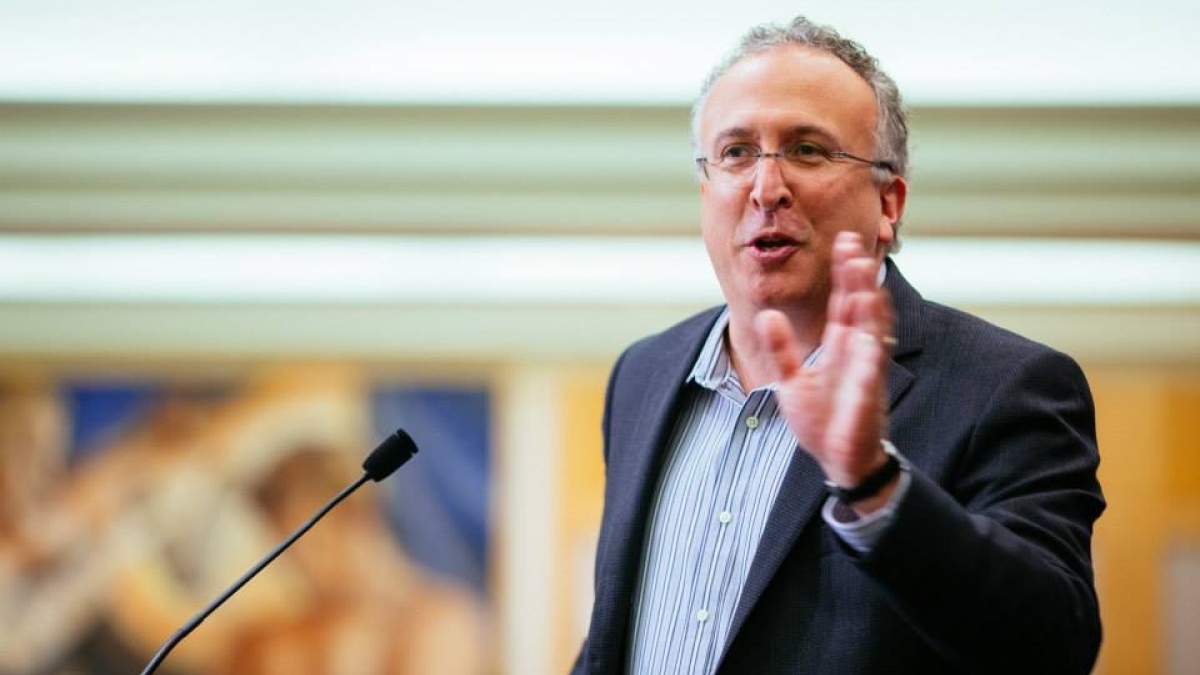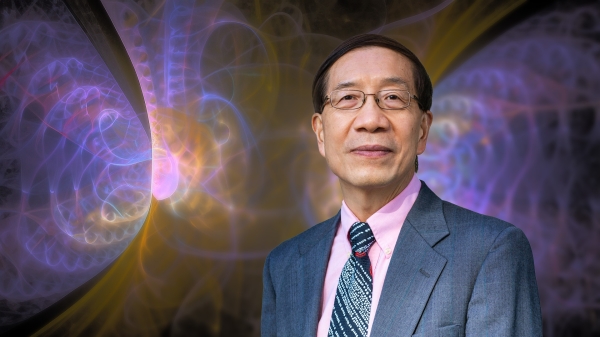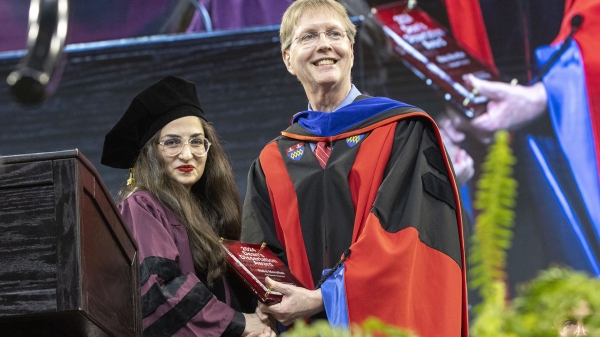ASU announces international tech leader as new chief information officer

Lev Gonick will serve as ASU's chief information officer starting Nov. 1.
Arizona State University has selected Lev Gonick, an internationally recognized leader in innovative technology strategies and solutions, to serve as chief information officer (CIO) starting Nov. 1.
Gonick will lead the University Technology Office (UTO), responsible for providing technology services and support to ASU’s more than 72,000 on-campus students, 28,000 online students and 15,000 faculty and staff. Gonick will report to Mark Searle, executive vice president and university provost; and Morgan R. Olsen, executive vice president, treasurer and chief financial officer. He will also hold the rank of professor of practice. Gonick will replace current CIO Gordon Wishon, who retires at the end of the year.
“Under Gordon’s exceptional leadership for the past seven years, ASU’s technology office has met the challenges of a growing, globally connected university,” Searle said. “Lev’s vision, transformational leadership style and track record of innovation will support the university in further realizing the potential of technology to empower the ASU community.”
A model for the New American University, ASU relies on its world-class University Technology Office to ensure students and staff have the resources they need to pursue academic excellence in the face of unprecedented technological advancements. The UTO is the hub for ASU’s “smart campus” initiative, which is leveraging Internet of Things technology, big data and analytics to provide students with a 21st-century higher-education experience.
Gonick will serve in a consulting role prior to starting in his official capacity. Presently, he concurrently serves as chief executive officer of DigitalC, a nonprofit that catalyzes innovative technology for community impact; and OneCommunity, an award-winning organization he co-founded that enables innovation, collaboration and productivity through next-generation broadband networks.
“We are delighted to welcome Lev to ASU,” said Olsen. “Throughout his professional career he has demonstrated a commitment to innovation, creativity and collaboration that aligns with the university’s efforts to redefine the landscape of public higher education.”
From 2001 to 2013, Gonick was chief information officer at Case Western Reserve University, where he and his colleagues were internationally recognized for technology innovations in community engagement, learning spaces, next-generation network projects and organizational development.
Inside Business magazine named Gonick to its Power 100 list in 2015, and Government Technology recognized him as one of the "Top 25 Doers, Dreamers & Drivers in Public-Sector Innovation" in 2011. That same year, Crain's Cleveland Business named Gonick one of its "10 Difference Makers" in northeast Ohio and Broadband Properties honored him with a Cornerstone Award for "using fiber to build an inclusive society and empower individuals." In 2010, he was honored as "Visionary of the Year" by the National Association of Telecommunications Officers and Advisors. Gonick has been recognized by ComputerWorld as a Premier 100 IT leader and by CIO Magazine with a CIO 100 Award.
A frequent international speaker and consultant, Gonick serves on the boards of Luminance, Civitas Learning, DigitalC, Coalition for Local Internet Choice, Jewish Family Services Association, Macromedia University, US Ignite, Groundworks Dance Company, Northeast Ohio Sustainable Community Consortium, OneCommunity and New Media Consortium.
“I have long been inspired by the vision and mission of ASU,” Gonick said. “I have the greatest respect for the senior administration and the many faculty and staff I have met on campus. I am genuinely thrilled to join ASU and help chart the ways in which the professional technology community can contribute to the advancement of this innovative university.”
Gonick holds a bachelor’s degree in political science from Ohio State University, a master’s degree in political science from Binghamton University and a doctorate in political science from York University.
More Science and technology
Extreme HGTV: Students to learn how to design habitats for living, working in space
Architecture students at Arizona State University already learn how to design spaces for many kinds of environments, and now they…

Human brains teach AI new skills
Artificial intelligence, or AI, is rapidly advancing, but it hasn’t yet outpaced human intelligence. Our brains’ capacity for…

Doctoral students cruise into roles as computer engineering innovators
Raha Moraffah is grateful for her experiences as a doctoral student in the School of Computing and Augmented Intelligence, part…